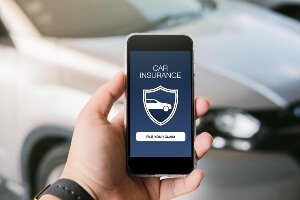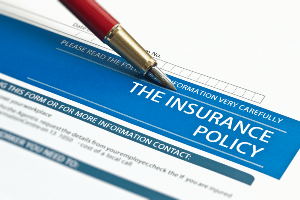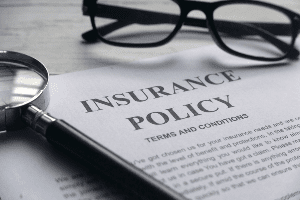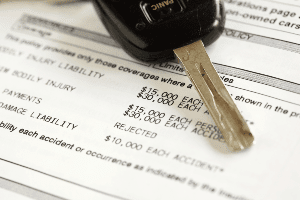TAP TO CALL
Hablamos Español
 In New Jersey, drivers may choose something called a Basic Policy. Those who choose a Basic policy have NO mandatory coverage for injuries they cause you if they hurt you or your family in a car accident. The Department of Insurance and Banking tells us on its website that these insurance policies are really made for NJ Citizens with little to no assets:
In New Jersey, drivers may choose something called a Basic Policy. Those who choose a Basic policy have NO mandatory coverage for injuries they cause you if they hurt you or your family in a car accident. The Department of Insurance and Banking tells us on its website that these insurance policies are really made for NJ Citizens with little to no assets:
“The Basic Policy should be considered by those with few family responsibilities and few real assets. It can provide a transition for younger drivers who are just beginning work, providing basic, minimum protection when they may be least able to afford more comprehensive coverage.“
https://www.state.nj.us/dobi/division_consumers/insurance/basicpolicy.shtml
So, what NJ is really telling you is that there are many people driving on our NJ roads: (1) who have no insurance to pay you damages if they hurt you, or even cause your death and (2) likely have no money to pay your damages. This is chilling.
A drunk driver can run you over in a crosswalk, cause you to lose your leg, and you get nothing for what you have lost? Maybe. However, there is a way to protect you and your family.
NJ makes insurance companies sell a piece of auto insurance called Underinsured/Uninsured Motorist coverage, also known as UM/UIM coverage. It sounds complicated, but it’s not, and it’s cheap. Basically, this coverage steps into the shoes of that driver who has no coverage to protect YOU. If that driver had zero coverage and hurt you in an accident and you had $300,000 of UM/UIM coverage through your auto policy – you could collect up to $300,000 for your injuries. Essentially, having this coverage means if YOU are in an accident, you can have the peace of mind that you have you have at least your UM/UIM limit for EVERY SINGLE DRIVER on our NJ roads that could hurt you.
We can’t tell you how many times people have come into our law firm and said things like, “My daughter is scarred for life, she did nothing wrong, the other driver just rear-ended her when she was stopped, how is it possible that there is no money to help compensate her for what she has lost.” It is a sad conversation we never like having.
When you renew your insurance, please consider purchasing UM/UIM coverage. You may be thankful you did.
If you ever have a question about insurance, an accident, what your rights are or anything like that, please give us a call. We are really here to help. I have posted a page from the NJ Department of Insurance and Banking about insurance limits in NJ. It has some good information.
Thanks, Jim Lynch
The chart below compares the differences between Standard and Basic policies and explains the amounts of coverage you may be able to purchase from an insurer. This information was taken directly from the New Jersey Department of Insurance and Banking website.
https://www.state.nj.us/dobi/division_consumers/insurance/basicpolicy.shtml
| Type of Coverage | Standard Policy | Basic Policy |
|---|---|---|
| Bodily Injury Liability Coverage for claims and lawsuits by people injured as a result of an auto accident you cause |
As low as: $25,000 per person, $50,000 per accident
As high as: $250,000 per person, $500,000 per accident |
Coverage is not included but $10,000 coverage for all persons, per accident, is available as an option |
| Property Damage Liability Coverage for claims and lawsuits by people whose property is damaged as a result of an auto accident you cause |
As low as: $25,000 per accident
As high as: $100,000 or more |
$5,000 per accident |
| Personal Injury Protection Coverage for injuries sustained in an automobile accident by you or other persons covered under your policy |
As low as: $15,000 per person or accident
As high as: $250,000 or more Up to $250,000 for certain injuries* regardless of selected limit |
$15,000 per person, per accident
Up to $250,000 for certain injuries* |
| Uninsured/Underinsured Motorist Coverage Coverage pays for property damage or bodily injury if you are in an accident caused by an uninsured motorist (a driver who does not have the minimum level of insurance required by law) or a driver who is insured, but who has less coverage than your underinsured motorist coverage |
Coverage is available up to amounts selected for liability coverage | None |
| Collision Coverage Coverage for damage to your vehicle as the result of a collision with another car or other object |
Available as an option | Available as an option (from some insurers) |
| Comprehensive Coverage Coverage for damage to your vehicle that is not a result of a collision, such as theft of your car, vandalism, flooding, fire or a broken windshield. Comprehensive coverage also pays if you collide with an animal. |
Available as an option | Available as an option (from some insurers) |
| *permanent or significant brain injury, spinal cord injury or disfigurement or for medically necessary treatment of other permanent or significant injuries rendered at a trauma center or acute care hospital immediately following an accident and until the patient is stable, no longer requires critical care and can be transferred to another facility in the judgment of the physician. | ||
 Partner James Lynch testified before the New Jersey Senate Commerce Committee on Thursday. In his official role as President of the New Jersey Association for Justice, Jim frequently testifies before the legislature.
Partner James Lynch testified before the New Jersey Senate Commerce Committee on Thursday. In his official role as President of the New Jersey Association for Justice, Jim frequently testifies before the legislature.
The legislative committee met to discuss a bill to regulate carsharing companies. The bill only requires vehicles to carry the state’s minimum auto insurance requirements. However, Jim is asking the legislature to reconsider and require the companies to carry $1.5 million in liability coverage.
“Since most traditional auto insurance will not cover a car driven using a peer-to-peer service, the peer-to-peer company should always be the primary insurance during the time the car is being shared,” Jim said in his testimony.
If the legislature agrees to Jim’s suggestion, carsharing services would be required to carry the same liability insurance limits as rideshare companies like Uber and Lyft.
 Even though New Jersey is a no-fault state, drivers are still expected to exchange insurance information after a crash. Remember that the property damage liability insurance of the at-fault driver should cover the costs of vehicle repairs. Also, if your injuries exceed the limits of your Personal Injury Protection (PIP) insurance, you may need to turn to the at-fault driver’s bodily injury liability insurance.
Even though New Jersey is a no-fault state, drivers are still expected to exchange insurance information after a crash. Remember that the property damage liability insurance of the at-fault driver should cover the costs of vehicle repairs. Also, if your injuries exceed the limits of your Personal Injury Protection (PIP) insurance, you may need to turn to the at-fault driver’s bodily injury liability insurance.
Unfortunately, there may be times when the at-fault driver refuses to exchange his or her insurance information with you. Below, we discuss some of your options for recovering that information if you are faced with this scenario.
If you have questions about your legal options to recover compensation, our New Jersey car accident lawyers are prepared to take your call. The consultation is free, and there are no upfront fees.
If the other driver involved in the crash is refusing to provide his or her insurance information, there is usually a reason. Generally, that reason is that the driver does not have insurance. Since driving without insurance is illegal, he or she may be trying to avoid the consequences of doing so.
However, there are other reasons a driver who does have insurance may refuse to share his or her policy details with you, including:
It is important to note that there is never a good reason to not cooperate with the other driver or police after a crash. However, some people may still try to justify their actions.
In New Jersey, it is illegal to refuse to provide proof of insurance when operating a vehicle. Those who fail to do so can face serious consequences, including fines and suspension of a driver’s license.
However, providing insurance information when asked to do so by the police responding to a crash and to the other driver are different. The other driver may legally refuse to provide his or her insurance information to you but must provide it to the police.
If the driver can convince you not to call police to the scene, he or she would not be breaking the law by not providing insurance information. That is why it is important to always call the police after an accident. No matter what the other driver offers or tries to argue.
It is generally always a good idea to call the police to the scene of an accident. It may be especially important when the other driver is not cooperating with you.
The driver is legally required to provide proof of insurance to police. That means the information you need will be on the police report. Once you have the police report, you can use the insurance information to file a claim.
While a police report is a useful tool to gather the information you need, it may not always be reliable. There could be errors on the report. That is why it is important to take other necessary steps after a crash.
After the accident, it is important to gather any information or potential evidence that could help you prove liability. Gathering this information could also help determine the insurance policy of the at-fault driver if he or she refuses to provide it to you.
Take photos of the vehicle that hit you. Make sure to get pictures of the license plate and the make/model of the car. If you cannot take photos of the necessary information for whatever reason, write it all down. This could help your attorney access the vehicle’s DMV records to find the insurance policy.
Also be sure to take note of the description of the driver. This, along with the vehicle description, could help an investigation if the driver flees the scene of the crash before police arrive.
If the other driver is refusing to provide insurance information, you may still have some options for getting it. Our attorneys are prepared to help investigate your claim to gather the necessary information to pursue the compensation you need.
For decades, our firm has worked hard to secure compensation on behalf of our clients. Give us the opportunity to do the same for you.
Call (800) 518-0508 to schedule a free consultation.
 When you borrow a vehicle from a friend or family member the last thing you are thinking about is getting into an accident, but what happens if you do? Whose insurance is liable for your damages?
When you borrow a vehicle from a friend or family member the last thing you are thinking about is getting into an accident, but what happens if you do? Whose insurance is liable for your damages?
At Lynch Law Firm, PC, our New Jersey car crash lawyers discuss your options for filing a claim if you are injured while driving another person’s vehicle. You may be able to use multiple sources of insurance if you suffered extensive damages.
If you have questions about how to file an injury claim after an accident, we are ready to help. Call today to schedule a free consultation to discuss your situation. Learn how we may be able to help you recover maximum compensation.
There is a common misconception about whether insurance follows the car or the driver. However, the coverage available depends on the type of insurance claim, especially in no-fault states like New Jersey.
For instance, if you are driving a borrowed car and that borrowed vehicle sustained damages in an accident caused by another driver’s negligence. In that situation, the repair costs may be covered by the at-fault driver’s property liability insurance. If you caused the crash, however, then the property liability insurance of the owner of the borrowed vehicle would apply.
When filing a claim for property damage, the insurance follows the car and not the driver.
The Personal Injury Protection (PIP) under your own auto insurance policy follows you. This means you are covered whether you are driving a borrowed vehicle, a passenger in another vehicle, or a pedestrian. Your PIP coverage also applies to any eligible members of your household.
It is important to note that some insurance policies may differ in the fine print, so it is important to discuss this with an experienced attorney.
If you were driving a borrowed vehicle and are not on that vehicle’s insurance, you may have an injury claim under your own PIP policy.
In cases when the damages you suffer exceed the limits of your own PIP insurance, you may have additional recovery options, such as:
Remember, however, that bodily injury liability and UM/UIM coverage are optional for New Jersey drivers, so these policies are not guaranteed. However, many drivers do choose to purchase these additional policies for the extra protection they provide.
If you were involved in a crash as the passenger of a borrowed vehicle, you may have a claim through the bodily injury liability insurance of the at-fault driver. If the at-fault party is the driver of the borrowed vehicle you were riding in, you would file your claim through the vehicle owner’s bodily injury liability insurance.
For example, if the driver of the vehicle you were riding in was texting or otherwise distracted and caused a crash that left you injured. You may be able to seek compensation for your damages from that person’s liability insurance. If, however, that same at-fault driver did not own the car, the claim would be through the vehicle owner’s policy.
Unlike PIP insurance, bodily liability insurance follows the car, not the driver.
It is highly likely that the insurance company will look for a reason to deny or devalue your claim, even when it is a valid one. That is why having a knowledgeable attorney on your side is important.
In cases of injury victims who were in a crash while driving a borrowed vehicle, the insurance company may try to deny the claim if you did not have explicit permission to use the car.
Depending on the terms of the policy, this may be a valid argument. Some insurance policies have a provision called “permissive use” that allows them to deny a claim for damages. For instance, if an excluded driver borrowed the car. The insurance company could also deny a claim for a driver who borrowed the car but did not have explicit permission to use that vehicle.
An excluded driver is someone who was added to the registered vehicle owner’s policy as someone who is not allowed to drive his or her vehicle. For example, a licensed household member with multiple traffic tickets could be excluded on a family member’s insurance policy.
Explicit permission means the owner of the vehicle specifically did allow another person to drive his or her vehicle.
If you borrowed someone else’s vehicle and were involved in an accident caused by someone else’s negligent actions, you may have several options for recovering full compensation.
Call our knowledgeable attorneys today to discuss your claim during a free consultation to learn more about how we may be able to help you.
We do not charge you anything up front or while we work on your case.
No upfront fees. No risks. Call (800) 518-0508 today.
 In January 2022, New Jersey’s governor signed a bill into law that would create a private cause of action for drivers whose Uninsured/Underinsured Motorist (UM/UIM) coverage claims were denied or delayed without good reason. These drivers could sue their insurance company for bad faith practices.
In January 2022, New Jersey’s governor signed a bill into law that would create a private cause of action for drivers whose Uninsured/Underinsured Motorist (UM/UIM) coverage claims were denied or delayed without good reason. These drivers could sue their insurance company for bad faith practices.
If you or a loved one were injured in an accident with a driver who did not have insurance to cover the costs of your damages, and your claim with your own insurance company was denied, you may be able to pursue compensation from your insurance company if you have a UM policy. If they act in bad faith, you may now be able to file a claim to try to hold them accountable.
Our New Jersey auto accident lawyers are prepared to review your claim to see how we may be able to help you. The initial consultation is free of charge.
The New Jersey Insurance Fair Conduct Act (IFCA) took immediate effect on January 18, 2022. The Act provides a statutory cause of action for insured drivers who bring forth a claim for bad faith insurance practices against their own insurance company for unreasonable delays or denials for payment of UM claims.
This means that policyholders who want to sue their own insurance companies for bad faith practices on UM claims can do so by pointing to a specific violation of state law instead of relying on common law and legal precedent.
In addition to providing cause of action, policyholders may also be eligible for greater compensation for bad faith claims if their lawsuit is successful.
In New Jersey, drivers who select a standard insurance policy are legally required to carry UM coverage that matches the liability limits on their policy.
Having a UM policy helps injury victims recover compensation for their economic damages, like medical bills and lost wages, when the liable party does not have any or enough insurance to cover those costs.
Generally, injury victims who are eligible to file a first-party UM claim must have:
New Jersey is different than most states due to its no-fault insurance laws that require drivers to carry PIP insurance, also known as no-fault insurance.
PIP covers medical costs and some other economic damages for the insured driver, no matter who caused the crash. Policy limits for PIP start out as low as $10,000 and could go as high as $250,000 or more, depending on the options selected by the insured driver.
The insurance company can try to argue that it should not have to pay a UM claim if a driver has PIP. However, if the liable party caused you significant damages that exceed the limits of your own no-fault insurance and that party does not have bodily injury liability insurance, you may be able to file a first-party claim through your UM coverage.
Both PIP and UM only provide compensation for economic damages, not for non-economic damages, like pain and suffering.
Your UM coverage will only kick in once your PIP is exhausted and the liable party’s liability insurance is either exhausted or non-existent.
As an insurance policyholder in New Jersey, you have certain rights when it comes to how your claim is handled by the insurance company.
For one, insurance companies have 10 business days to respond to any claims. If the company decides your claim is not a valid one, they must provide an adequate explanation of why your claim was denied within 30 calendar days of when you initially filed the claim.
Before denying a claim, however, the insurance company is also legally required to conduct a fair and thorough investigation to determine its validity.
The insurance company cannot deny your claim without adequate cause. Some other examples of bad faith practices include:
While the insurance company is not legally obligated to negotiate a settlement with policyholders, they are required to offer appropriate compensation for your damages. Insurers may be accused of bad faith practices if they make a settlement offer that is well below the actual value of a claim.
There are some steps you may need to take before filing a bad faith insurance lawsuit.
The first, and most important, is to appeal your claim if it is denied. Under New Jersey state law, you are required to file an appeal in accordance with your insurance company’s Internal Appeals Process. The insurer is obligated to provide information on how to go through this process in layman’s terms. Our attorneys are prepared to help through this process.
After you have appealed your claim with the insurance company, you may be able to file a complaint with New Jersey’s Office of the Insurance Ombudsman.
Once you have exhausted your appeals, you should strongly consider filing a lawsuit if the insurance company is still not making an adequate effort to pay compensation for a valid claim.
It is important to note that most insurance policies have a clause in their contracts specifying that any disputes between the insured and the insurer need to be resolved through arbitration. Our attorneys can look through the wording of your contract to determine what your legal options may be if you believe your insurance company is not acting in good faith.
The new law does not set a statute of limitations for these claims. However, claims filed under common law typically have a six-year statute of limitations, which is the deadline for UM/UIM claims.
In practice, the new law may extend the statute of limitations for bad faith actions – you could argue a claim for a violation of the IFCA is not valid until the UM/UIM claim concludes.
If you were injured in an accident caused by someone who does not have enough insurance to cover the costs of your damages, you may be able to file a claim through your own UM coverage. If that claim is unfairly denied, you may be able to pursue compensation for bad faith insurance practices.
Call our experienced attorneys today to schedule a free consultation to learn more about your legal options.
No upfront fees. No risks. Call (800) 518-0508
 Injury victims have the legal right to pursue compensation for damages after an accident. However, recovering compensation may be difficult if you only have the minimum required coverage or the liable driver has no insurance.
Injury victims have the legal right to pursue compensation for damages after an accident. However, recovering compensation may be difficult if you only have the minimum required coverage or the liable driver has no insurance.
Below, our car crash lawyers in New Jersey discuss what the minimum insurance requirements are and what add-ons may benefit you if you are injured in a crash caused by someone else.
New Jersey is a no-fault state. This means drivers who are injured in a car accident must first file a claim through their own insurance policy, no matter who is at fault for the collision.
A basic insurance policy meets the legal requirements for auto insurance in the state and includes the following:
The standard insurance policies offered also provide PIP and liability insurance for property damage and bodily injury to others. The difference between the two is that a standard policy also offers:
The economic circumstances of individuals may seriously impact decisions about the type of insurance policy to purchase.
For drivers who have a strict budget, choosing a basic policy to meet legal standards on carrying insurance may be more beneficial.
However, it is important to note that this could seriously affect your chances of recovering the necessary compensation if you are injured in an accident that is not your fault. While PIP insurance is likely to cover your medical bills, some lost wages and other economic damages, a basic policy has limited coverage.
If your damages exceed your PIP limits, you may need to turn to the at-fault driver’s liability insurance to recover these costs. But what if the liable party does not have enough insurance either? Injury victims may be left paying for medical treatment out of pocket. A basic insurance policy does not provide UM coverage, which may pay for economic damages not covered by the at-fault party’s liability policy.
If you decide a standard policy is a right fit for your insurance needs, you also have to decide whether you want the limited or unlimited right to sue for non-economic damages.
The law allows anyone injured due to someone else’s negligence to pursue compensation for damages associated with the accident. Including compensation for physical and emotional suffering, which are non-economic damages.
When choosing the limited right to sue under a standard policy, however, New Jersey drivers are forfeiting their right to pursue compensation for non-economic damages. Doing so may negatively impact you, as some accidents can have long-lasting effects on a person’s emotional well-being, especially if you develop Post-Traumatic Stress Disorder (PTSD) after a crash.
There are some exceptions to the rules about when you can sue if you choose a limited right to sue policy. You may be able to sue for non-economic damages if you suffer one of the following in a crash:
While choosing a standard policy with the unlimited right to sue may come with a higher premium, it also comes with more coverage that may help you when you are injured in a crash.
There are some coverages you may be able to add to your policy:
Our experienced attorneys know the law and are prepared to help you through the complex process of filing a claim after you have been injured in an accident caused by someone else’s negligent actions.
Call (800) 518-0508 to schedule a free consultation.
 One of the first questions accident victims have after a crash is whether to file a claim with their own auto insurance policy or the insurance policy of the driver who caused the collision.
One of the first questions accident victims have after a crash is whether to file a claim with their own auto insurance policy or the insurance policy of the driver who caused the collision.
New Jersey’s laws are unique in that you may have to file a claim with both insurers. Below, we discuss why you need to file a claim with your own insurance first and when you may be able to file a third-party claim.
If you have any questions about this process, you should call our car crash lawyers in New Jersey as soon as possible. The consultation is free and there are no upfront fees.
New Jersey is a no-fault state, which means that all drivers are required to carry a Personal Injury Protection (PIP) insurance policy to cover any injuries they suffered in an accident. This is no-fault coverage, which means you can use it even if you are at fault for the crash.
PIP insurance only covers the economic damages from your injuries, such as medical bills and lost wages, up to the policy limit you have chosen. The minimum coverage amount for PIP in New Jersey is $15,000, but you can purchase up to $250,000 in coverage.
PIP insurance does not cover are non-economic damages such as pain and suffering, and property damage.
Because PIP does not cover certain damages, but you still need them paid for if you did not cause the crash, you may need to file a third-party claim with the at-fault driver’s liability insurance. There are multiple scenarios when you may be able to do this.
As PIP does not cover the cost of repairing your vehicle, you may be able to file a claim with the at-fault driver’s property damage coverage. Just as every driver in new Jersey is required to carry PIP insurance, they are also required to carry property damage liability insurance. When you file a claim for property damage you may be able to get all or some of the following covered:
You may also be able to file a third-party claim with the at-fault driver’s insurance if your economic damages exceed the amount of PIP coverage you have. For example, if you have a $15,000 PIP limit but your medical bills are $20,000, then the bodily injury liability insurance of the at-fault driver may pay the difference. It is important to note that not every driver has bodily injury liability insurance, but most do.
You may be able to file a lawsuit against the at-fault party to recover additional compensation. However, the type of insurance policy you purchased affects your ability to file a lawsuit. Some policies only allow injury victims to file a claim for bodily injury if they suffered one of the following:
Before you speak to either your own insurance company or the liable party’s, you should consider calling an experienced attorney.
Insurance companies look for any reason to deny or devalue claims and often ask for recorded statements from injury victims so they can use things you say to them against you. With help from one of our knowledgeable attorneys, you may be able to avoid saying the wrong thing to inadvertently hurt your claim.
Once the insurance company knows you have an attorney helping you file a claim, they are likely to act in a fairer manner.
If you were injured in an accident and need to file an injury claim, but do not know where to start, call our knowledgeable attorneys at the Lynch Law Firm, PC today. We are prepared to help you through the legal process from start to finish to help maximize your compensation for medical bills, lost wages and other damages.
The consultation is free, and we do not charge you anything up front. We also do not get paid unless we successfully recover compensation on your behalf. We have fought hard to protect our clients’ rights for decades. Let us do the same for you.
Call (800) 518-0508 to schedule a free consultation.
 If you were involved in an accident that left your vehicle badly damaged, you may be wondering what your options are for getting a temporary replacement vehicle while yours is being repaired.
If you were involved in an accident that left your vehicle badly damaged, you may be wondering what your options are for getting a temporary replacement vehicle while yours is being repaired.
You may be able to use your own insurance coverage, but you may also be able to get the other driver’s insurance to cover your rental car costs.
Our experienced New Jersey auto collision lawyers are prepared to review your claim to see how we may be able to help you get your rental car costs and other damages covered.
Below, we discuss who should be liable for the costs of renting a vehicle and what your options may be if the insurance company refuses to pay.
Under New Jersey auto insurance law, an at-fault driver’s insurance company is required to reimburse the victim for the cost of renting a car. That said, the liable insurance company is not required to commit to making payments until it is reasonably clear their policyholder is at fault for the crash.
It is important to note, the liable insurer is only required to pay for a rental car or substitute transportation for the period when the vehicle is being repaired. If your vehicle is a total loss, the insurance company may be required to reimburse you for rental car costs until the claim is settled.
Usually, the insurance adjuster will be in contact with you about the details of your vehicle rental. Be sure to keep the conversation about the rental, as you do not want to discuss anything about your injuries or the facts of the accident.
New Jersey law does not specify the type of vehicle the liable insurance company is required to pay for. Typically, insurers will reimburse you for a vehicle that is like the one you were driving before. If an insurance company is only going to pay a certain amount per day, they must tell you where you can go to rent a car for that amount.
In some cases, liability may not be apparent, and the insurance company may refuse to cover the costs of renting a vehicle. Fortunately, you may still have some options available to you to recover these costs or have them paid up front.
You may be able to file a first-party claim with your own insurance company if you have a rental car coverage option on your policy. This insurance add-on is usually encouraged for these types of situations.
You may be able to get the liable insurance company to reimburse you after the claim is resolved. You may need to pay up front for the rental car. However, some rental car companies offer discounts to those renting a car because the other car they drive was damaged in a crash. You would need to research rental car companies to see what discounts may be available.
If you are able to get your insurance company or the at-fault driver’s insurance company to cover the costs of renting a vehicle while yours is being repaired, it is important to keep a few things in mind.
The type of vehicle you rent should be similar to the one that was crashed. Just as the insurance company cannot skimp on a compact vehicle if you have an SUV, you also cannot expect to be given a luxury vehicle if you drive an older model. If you try to upgrade, you may need to pay the additional cost not covered by insurance.
You should also know that the period for which you are given a vehicle varies depending on how long it will take to repair your damaged vehicle. If your vehicle was totaled and you need to replace it, the insurance company may only cover rental costs for a few days. It is important that you ask, and are told explicitly, how long you have the vehicle contracted. Remember that the cost of using the vehicle for any extra time will be billed to you.
You may also want to talk to the insurance company about the limits of your rental car coverage. You may want to purchase additional coverage from the rental car company if you can afford it.
If you need help filing a claim after an accident caused by someone else’s negligence, our attorneys are prepared to help.
We offer a free consultation and do not charge you anything up front. We only get paid if we successfully recover compensation on your behalf. There is no risk to you.
Call (800) 518-0508 to learn more.
 New Jersey is a no-fault state where you file a claim for your injuries through your own policy no matter who is responsible for the crash. However, it is still important to establish who caused the accident to avoid higher premiums in the future and to allow the possibility to pursue compensation if your damages surpass the amount of Personal Injury Protection (PIP) available.
New Jersey is a no-fault state where you file a claim for your injuries through your own policy no matter who is responsible for the crash. However, it is still important to establish who caused the accident to avoid higher premiums in the future and to allow the possibility to pursue compensation if your damages surpass the amount of Personal Injury Protection (PIP) available.
If the at-fault driver lies to avoid liability for the crash, you may need to take several steps to protect your claim. One of the most important first steps is to discuss your accident claim with one of our knowledgeable car accident lawyers in New Jersey.
Below, we discuss steps you should take if you suspect the at-fault driver will lie to his or her insurer.
The most obvious reason why an at-fault driver would lie about an accident is to try and avoid liability for any damages caused in the crash. The person may lie to the police at the scene to avoid getting ticketed, arrested or fined. In these cases, the at-fault driver may lie about:
Some at-fault drivers may even go as far as lying about mechanical failures, such as failed brakes, especially if he or she slammed into the back of your vehicle where fault may be obvious.
If you were hit by a driver who fled the scene of the crash, that person may also lie to his or her insurance company to try and get his or her repair costs covered by the insurance while avoiding liability for your damages.
There are some steps you may be able to take to help establish your credibility over the at-fault driver’s.
If you believe the at-fault driver is lying to the police after the crash, stay calm and do not try to confront the person about his or her alleged lies. Simply speak to the police officer responding to the crash and provide your version of events.
In addition to providing an official statement to the police, you should also try and speak to as many witnesses at the scene of the crash as possible. These eyewitnesses may potentially help corroborate your version of events to the police and to the insurance company during your claim.
Be sure to get contact information from any witness you speak to in case you need to ask follow-up questions. If a lawsuit is filed, it may be useful to have the person’s information if you need him or her to testify on your behalf.
When it is safe for you to do so, and if you are able, you should try and gather evidence at the scene of the crash. This could include taking photos of the following:
It is also recommended that you get the insurance information of the other driver so you can file a claim with the insurance company yourself. Be sure to speak to one of our attorneys before you provide any official statements to the liable insurance company to help protect your rights as an injury victim.
When you provide a statement to the police and to the insurance companies (your PIP and the liability insurance) be consistent with your answers and the retelling of the accident. Inconsistency in your statements may damage your credibility, making it harder to recover the compensation you need.
When the insurance company is determining the validity of a claim and the opposing parties’ stories do not line up, they will likely be forced to conduct a more thorough investigation. If your story does not change from the one you first gave, but the other driver’s story does, you may be in a better position to recover the compensation you need.
In New Jersey, insurance fraud is considered a third-degree felony. Lying to the insurance company or knowingly omitting information when filing a claim is considered insurance fraud. Therefore, the consequences for lying during an injury claim may have serious legal consequences for the person guilty of a lie.
Additionally, lying to the police may also have criminal consequences, especially when that false information is included in an official report.
Lastly, if a lawsuit is filed and the at-fault driver lies about something during the case while under oath, he or she may be held in contempt of court, which often carries heavy sanctions from the court.
The exact consequences may depend on the severity of the lie and are often determined on a case-by-case basis.
One of the most important moves to make when trying to protect your claim from dishonest at-fault drivers is to speak to an attorney. Our lawyers are prepared to help you build a strong case for compensation and prove the other driver is not being honest about what happened during the accident.
We offer a free consultation to discuss your claim and see what legal options may be available to you.
Call (800) 518-0508 to get started.
 New Jersey requires every driver to carry motor vehicle insurance in case of an accident. To comply with the law, motorists purchase a policy advised by a licensed agent who they hope will help save them money. But not many people take a good look at the type of coverage they have until they need to use it.
New Jersey requires every driver to carry motor vehicle insurance in case of an accident. To comply with the law, motorists purchase a policy advised by a licensed agent who they hope will help save them money. But not many people take a good look at the type of coverage they have until they need to use it.
It is important to understand the benefits of your insurance policy, as it may help you pursue compensation for simple things like lost wages or more complex things like pain and suffering.
Below, we discuss the policies and coverage types that may be available to you and how they may benefit you in different accident scenarios.
Due to high costs of auto insurance, motorists have the option to choose between a basic or standard insurance policy in New Jersey.
Unlike other states, which have a single set of insurance minimum requirements, New Jersey has two, and the minimum requirements offered depend on the type of policy you are purchasing.
The minimum insurance offered for a basic policy is as follows:
Some other options that are available under a basic policy, but are not required as part of the minimum coverage, include:
Uninsured/underinsured motorist coverage is not available to basic policyholders.
For motorists who choose to purchase a standard insurance policy, the minimum insurance offered includes:
The type of insurance policy you choose may affect how much you may be able to recover in compensation if you are injured in a crash.
Since New Jersey is a no-fault state, one of the most important insurance policies to have is personal injury protection (PIP). This type of insurance covers a range of economic damages, no matter who caused the crash.
It is common knowledge that PIP covers your medical expenses after an accident, but did you know you may also be eligible to recover compensation for things like:
PIP insurance covers you, passengers in your vehicle at the time of the crash and other members of your household when they are traveling as passengers in another vehicle not associated with your policy.
In some circumstances, PIP may even cover you or members of your household if you are involved in a pedestrian or bicycle accident.
Just like other insurance limits, the maximum payout of PIP benefits depends on how much insurance is available.
Standard policyholders may choose to purchase over $250,000. Basic policyholders only have $15,000 available, except in cases of certain injuries where a basic policy would cover damages up to $250,000.
If the cost of damages exceeds your PIP limits, you may be able to pursue compensation from the liability insurance of a negligent driver.
While the liability insurance company is legally obligated to investigate every claim, they also have the right to defend against those claims and are under no obligation to offer a settlement, although most will if there is a strong case for compensation.
If the liable insurance company is refusing to offer a settlement, you may have to file a lawsuit to recover the compensation you need. But this also can get complicated when it comes to New Jersey tort laws, which cover personal injury claims.
Drivers who purchase a basic insurance policy have a very limited right to file a lawsuit to recover compensation for pain and suffering. Unless, however, he or she suffered a certain type of injury.
Under the standard policy, drivers may choose between a limited and unlimited right to sue.
When you purchase a standard insurance policy there are additional coverage options to choose from that may help you after an accident. Some of those add-ons include things like:
If you were injured in a crash that was not your fault, it may be in your best interest to discuss your situation with a licensed attorney who can review your insurance coverage and the insurance policy of the at-fault driver to see what legal options may be available to you.
Our knowledgeable auto collision lawyers in New Jersey are prepared to help you understand your options and file a claim to pursue the compensation you need.
Call (800) 518-0508 to schedule a free consultation.